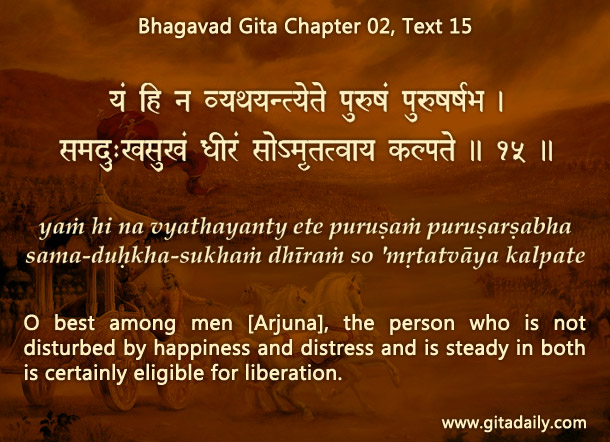Suppose a person had got a huge legacy that they could claim by traveling by ship to a distant place. They wouldn’t get their destined legacy if during the journey they became distracted by attractive-looking islands or became fearful of the voyage’s troubles.
The Bhagavad-gita explains at our core, we all are eternal souls (02.13). We are meant for the glorious destiny of everlasting happiness. To attain this destiny, we need to make a journey of consciousness from the material level of reality to the spiritual level.
How can we traverse this journey? By practicing yoga, especially bhakti-yoga, which is a time-honored process for spiritualizing our consciousness.
During this yogic journey, we can get distracted by the lure of material pleasures or the fear of material troubles. To keep us focused, the Gita reminds us that all material pleasures and troubles are temporary (02.14); and those who remain undisturbed amidst life’s dualities attain their destiny of immortality (02.15).
What if the pleasures seem irresistible? We need to remember that material pleasures are at best short-lived; the capacity of our senses to enjoy sense objects is inescapably limited. And the fleeting pleasure leads to much misery (05.22). And the austerity in giving up these pleasures is more than counterbalanced by the spiritual happiness we access as we progress on our yogic journey. Significantly, spiritual happiness isn’t something accessible only at the journey’s end; we access it along the way as we realize our spiritual nature by progressive yoga practice.
What if we have urgent problems threatening us? Yoga practice calms us, thereby enabling us to tackle those problems more effectively. And such practice doesn’t take all our time; by sincere desire and intelligent planning, we can manage both our material and spiritual sides.
Thus, spirituality empowers us to relish our destiny of eternal happiness.
To know more about this verse, please click on the image
Explanation of article:
Podcast:


Leave A Comment